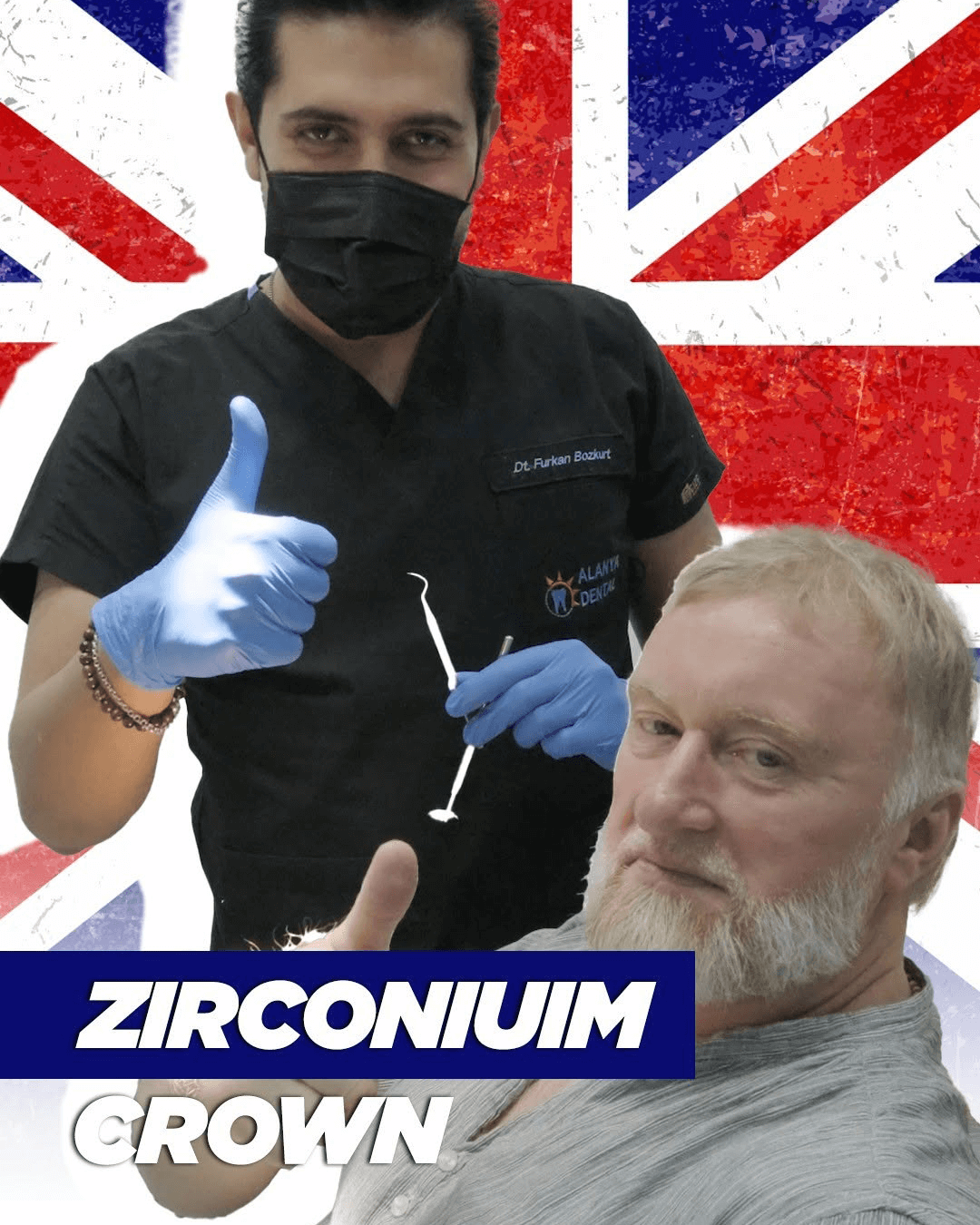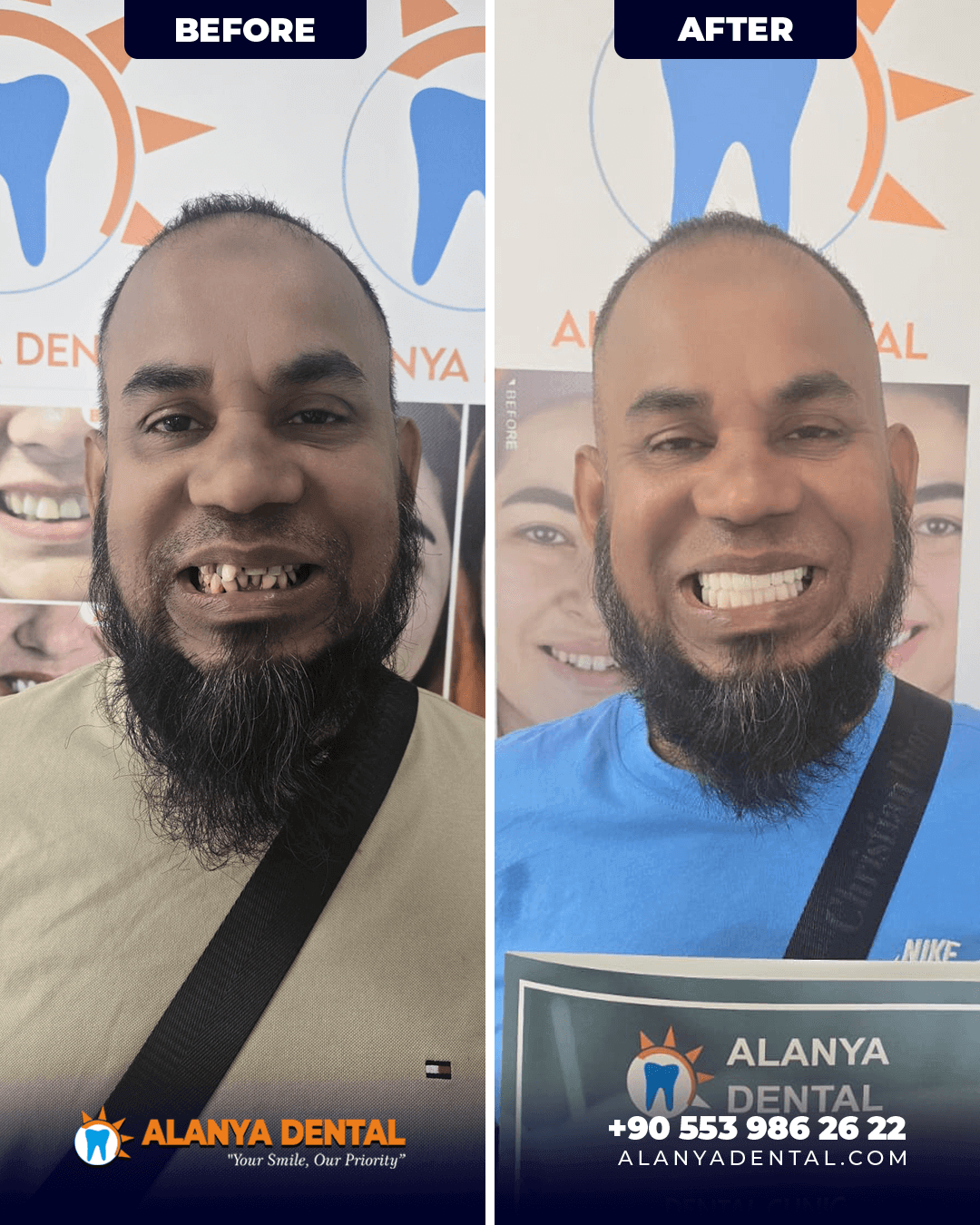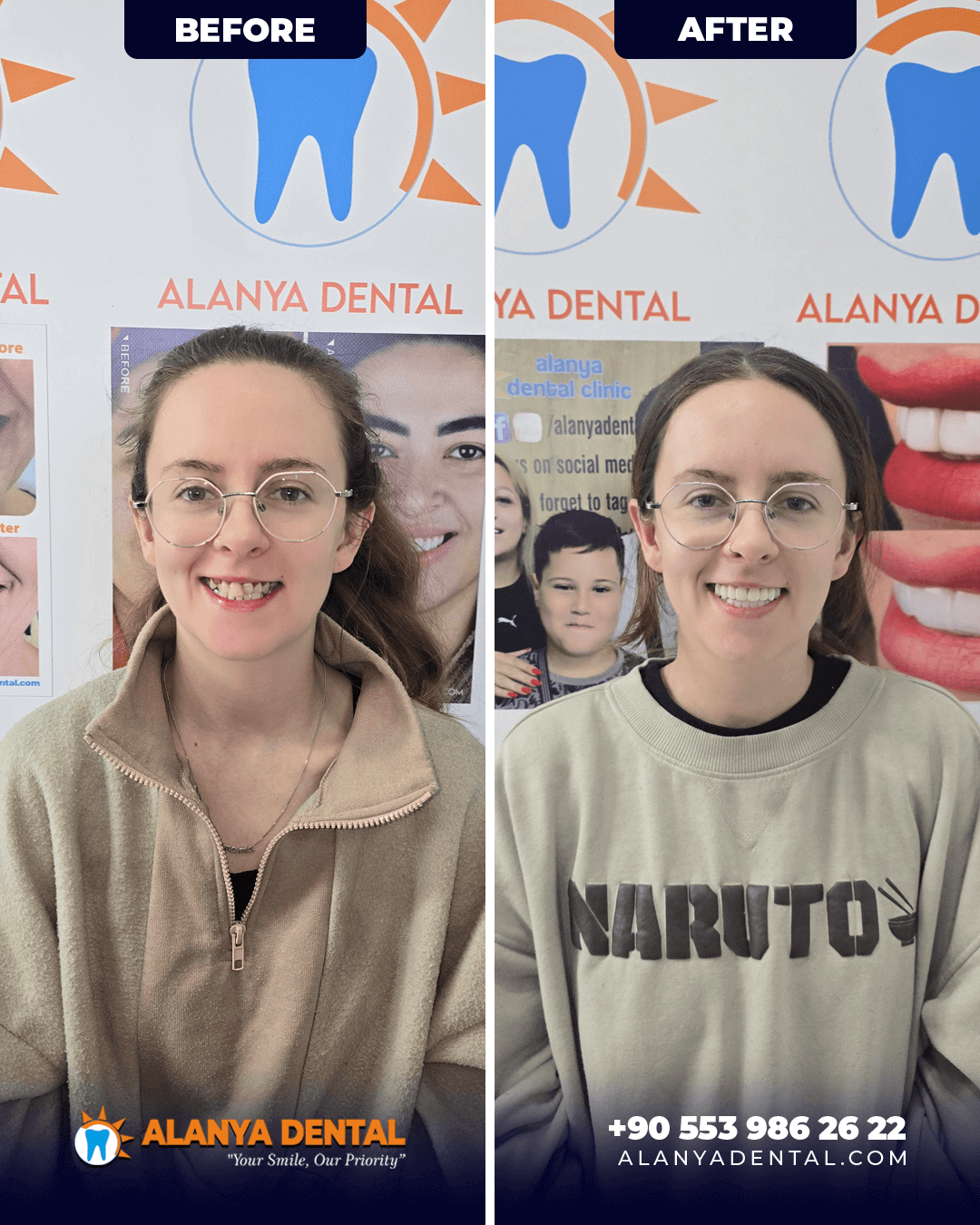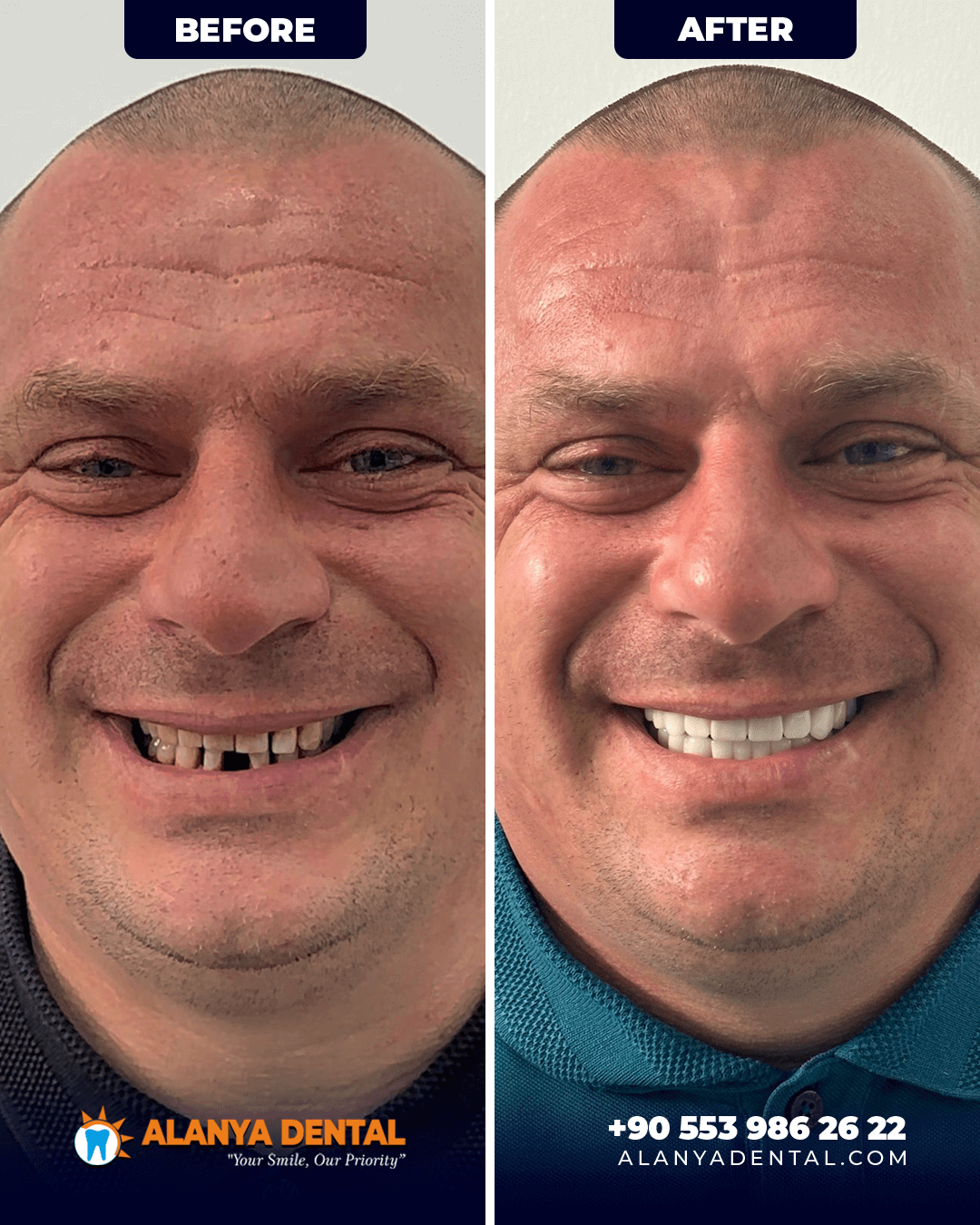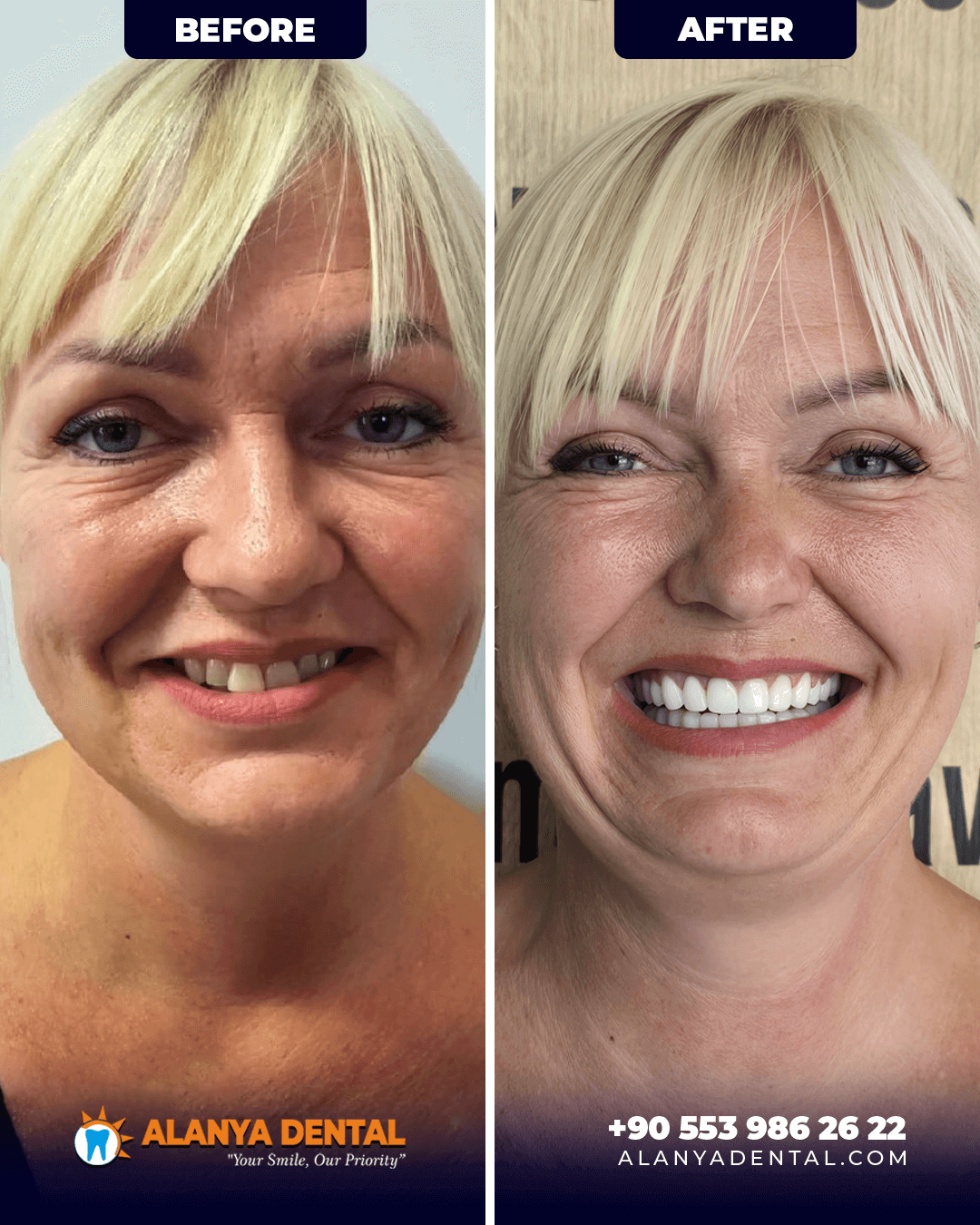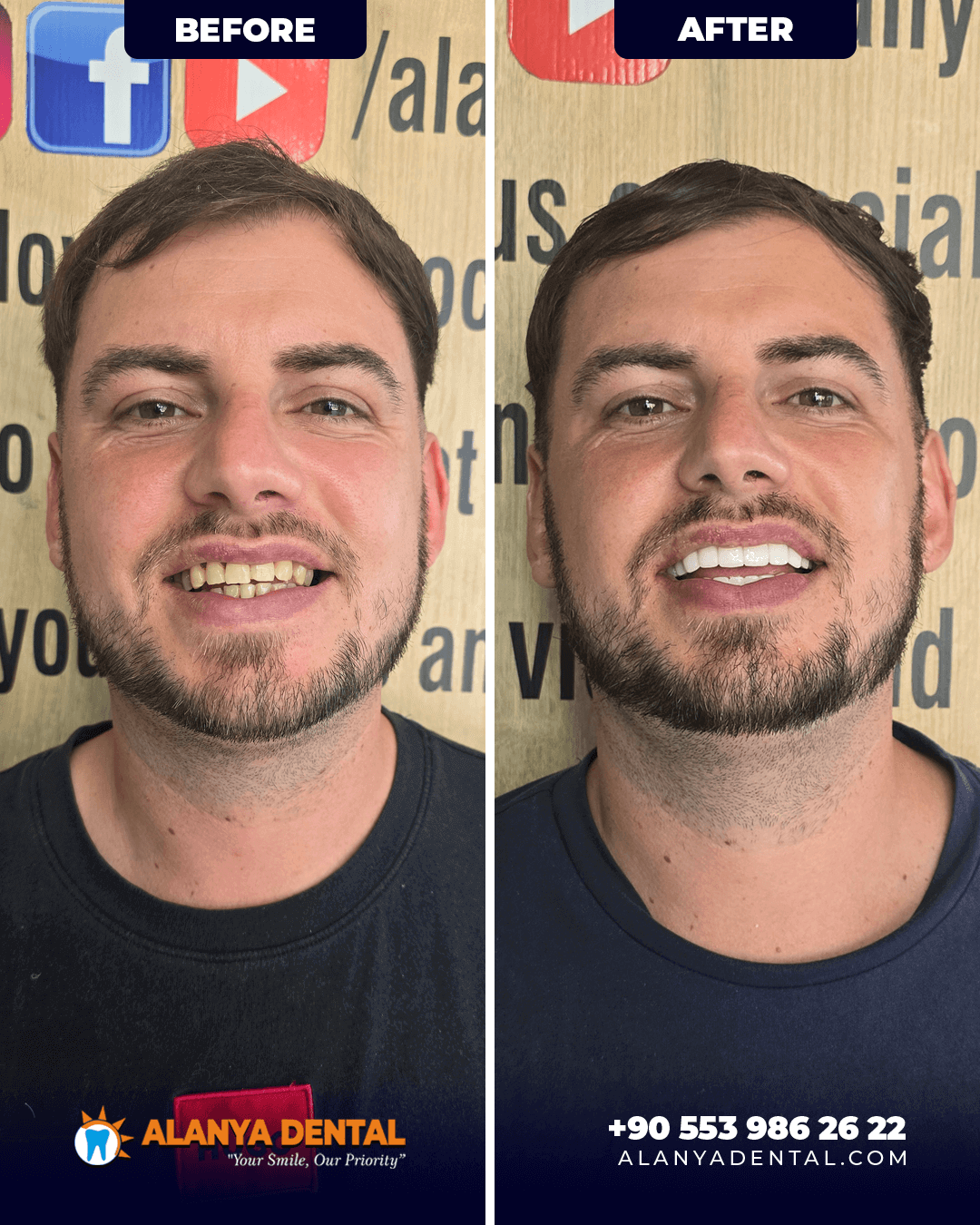Dental Crowns in Turkey

Dental Crowns in Turkey
Dental crowns are specialized prosthetic structures that provide complete coverage for damaged or aesthetically undesirable teeth. During the procedure, only the upper portion of the tooth is targeted. This preserves the existing root structure and allows the tooth to continue functioning smoothly.
Crown construction begins with a detailed examination of the tooth. Any issues such as decay, fractures, or wear are addressed, the tooth is shaped, and impressions are taken. These impressions are used in the laboratory to create a custom-made crown.


Temporary Dental Crowns
Temporary dental crowns are interim solutions that protect teeth and provide an aesthetic appearance during the permanent crown fabrication process. The fabrication of a permanent crown can take several days or weeks. During this time, the tooth's exposure can lead to sensitivity, chewing difficulties, and visual problems. Temporary crowns are used to prevent these problems.
Temporary crowns made by Alanya Dental Clinic are planned to provide the best results in terms of both comfort and aesthetics. During this process, the patient can seamlessly transition to the permanent crown. With proper care, temporary crowns perform their function perfectly. Regular cleanings ensure oral hygiene. Once the process is complete, a permanent crown is placed to ensure long-term protection.
What Are Dental Crowns?
Dental crowns are prosthetic structures that completely cover the upper portion of the tooth, providing both protection and function. They are used in cases of fracture, decay, wear, or discoloration. The natural tooth root is preserved, allowing chewing and speech functions to continue uninterrupted.
During the treatment process, the affected area of the tooth is cleaned and shaped to the appropriate shape. After an impression is taken, a custom crown is prepared for the patient in the laboratory.

Porcelain or Ceramic Crowns in Turkey
Among the veneering solutions used in dentistry, porcelain and ceramic crowns stand out for their long-lasting properties and aesthetics that closely resemble natural teeth. Both materials are biocompatible, allowing them to work seamlessly with oral tissues. Therefore, they are widely preferred for both front and back teeth.
Porcelain crowns, with their light-reflecting structure like natural tooth enamel, allow for a realistic appearance. Color matching is important for smile aesthetics, and porcelain offers a strong option in this regard. Ceramic crowns, on the other hand, stand out for their durability. At Alanya Dental Clinic, these treatments are performed comfortably, quickly, and reliably.
Dental Crown Treatment Steps
Dental crown treatment is an important method used to restore the functionality of damaged or aesthetically problematic teeth. The process is completed in several steps, and with proper planning, permanent results are achieved. Here are the stages of dental crown treatment:
- ExaminPreparation and shaping of the tooth
- Taking an impression
- Application of a temporary crown
- Preparation of the permanent crown in the laboratory
- Try-in of the crown
- Placement of the permanent crown
The treatment process begins with a detailed examination by your dentist. A treatment plan is developed based on the condition of the tooth, X-ray images, and an examination of the oral cavity. During the preparation phase, the tooth is shaped to accommodate the crown, and unnecessary enamel is removed.


Dental Crown Prices in Turkey
Factors that determine dental crown prices aren't limited to the material selection alone. The technologies used, laboratory quality, dentist experience, and any additional procedures performed during the treatment process also play a significant role in determining price ranges. Production costs for different materials, such as porcelain, ceramic, and zirconium, vary.
A pre-treatment examination by a dentist is a key factor in determining the price. In some cases, gum treatment, root canal treatment, or filling procedures may be necessary before the crown is placed. These additional procedures can also affect the overall cost.
How Long Does Dental Crown Treatment Take in Turkey?
The duration of dental crown treatment in Turkey varies depending on the method used and the patient's oral structure. With traditional methods, treatment time usually involves several sessions. In modern clinics using digital systems, this time can be significantly shorter.
Treatment begins with a detailed examination. Tooth preparation, impressions, and placement of a temporary crown constitute the crucial steps of the first session. During the laboratory phase, several days may be required to prepare the crown with a precise fit and the correct shade. In clinics using CAD/CAM technology, this phase can be completed the same day.

When Can I Eat After Dental Crown Treatment?
Once dental crown treatment is completed, a period of adaptation begins in the mouth. The timing of eating after treatment varies depending on factors such as the material used, the type of adhesive, and the position of the tooth. If a temporary crown is placed, extra attention should be paid to eating habits, as there is a risk of the crown falling out. After the permanent crown is placed, the dentist generally recommends waiting a certain period of time in the mouth for the adhesive to fully harden.
The first few hours after treatment are crucial for the bonding material to fully harden. Eating during this period is not recommended. Starting with soft foods after the waiting period will facilitate the process of adaptation to the tooth and the new crown. Avoid very hot, very cold, or extremely hard foods during the first day. This will ensure the crown fits properly and reduce sensitivity.


Types of Dental Crowns
Dental crowns are manufactured from different materials to protect teeth and improve their appearance. Each type has its own unique structure, advantages, and uses. Here are the most popular types of dental crowns.
- Metal crowns
- Porcelain crowns
- Zirconium crowns
- Ceramic crowns
- Metal supported porcelain crowns
Metal crowns offer long-term protection for back teeth thanks to their durability. Porcelain crowns offer an aesthetic solution by offering an appearance close to natural tooth color. Zirconium crowns support a natural appearance with their robust structure and light transmission. Ceramic crowns, thanks to their biocompatibility, are suitable for individuals at risk of metal allergies. Metal-supported porcelain crowns, on the other hand, offer both durability and aesthetic benefits.
FAQ's
Frequently Asked Questions
The duration of dental crown treatment can vary depending on the patient's dentition, the goal of the treatment, and the techniques used. Before treatment begins, the tooth must be prepared. During the preparation phase, the tooth is shaped with special burs to ensure a perfect fit for the crown. This process is usually completed in a single visit.
After preparation, an impression of the tooth is taken and sent to the laboratory. The resulting molds are used to create a model of the crown. The type of material used (porcelain, zirconium, or metal-based) may vary depending on the timeframe. The laboratory process typically takes a few days to a week to complete. A temporary crown is applied to protect the tooth during this time.
Pain during dental crown treatment is generally minimal. Local anesthesia is administered before the treatment to numb the tooth and surrounding area. This eliminates pain during the procedure. Once the anesthesia takes effect, the tooth is reduced in size to accommodate the crown. At this stage, the patient may only feel vibration and light pressure.
It's normal to experience some mild sensitivity after the anesthesia wears off. This sensitivity typically occurs with contact with hot or cold temperatures or while chewing. It typically subsides within the first few days. If necessary, your dentist may recommend desensitizing toothpastes or protective coatings.
Minor gum adjustment problems may also occur during the crown placement process. Mild swelling or redness may occur as the gum tissue adjusts to the new crown. Regular brushing and antiseptic mouthwashes will speed up this healing process.
The dental crown fabrication process is meticulously executed to achieve both functional and aesthetically pleasing results. The first step is a detailed assessment of the tooth's current condition. Decayed, broken, or worn teeth are repaired first. The tooth then needs to be shaped to accommodate the crown.
During the shaping process, the tooth is reduced in size using special tools. This ensures a perfect fit for the crown. Then, an impression of the tooth is taken. While traditional methods use a putty-like material, modern systems utilize digital scanning devices. At Alanya Dental Clinic, crowns can be placed in a single day.

Book Your Free Consultation Today!
Free Consultation

Healthy Teeth, Happy Smile!
Healthy teeth are the foundation of a confident and radiant smile — because when your teeth are healthy, every smile shines brighter and makes you feel happier inside and out.
Why Booking a Dental Appointment at Alanya Dental Clinic is Essential for Your Oral Health


 TR
TR DE
DE Teeth Cleaning
Teeth Cleaning 


